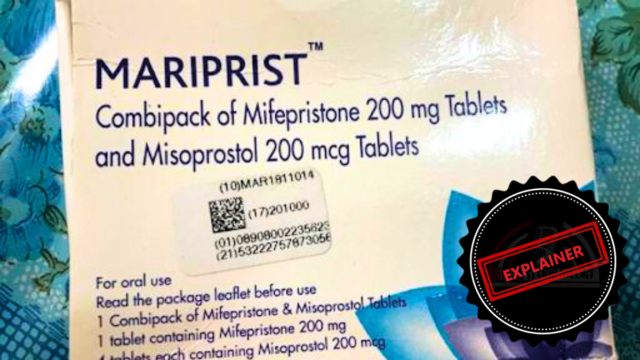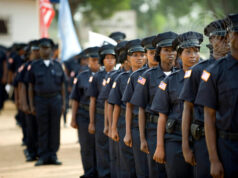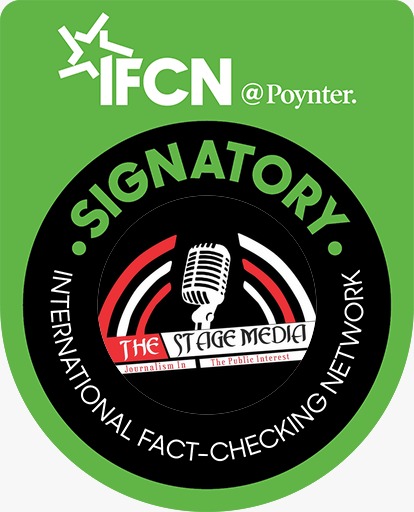
Liberia, like several other nations, has limited abortion laws that restrict women and girls from accessing safe abortion services and care, with weak regulations and protections for persons seeking or performing an abortion.
Strict regulations and stigma in Liberia make it difficult for women of reproductive age to get safe abortions and post-abortion care services.
Due to the restrictions, a lot of pregnant women and girls seek abortions from unskilled practitioners working in filthy conditions.
Section 16.3 of Liberia’s penal code, abortion beyond the 24th week of pregnancy is illegal.
Abortion is legal if it occurs only after a licensed physician determines there is a substantial risk that continuing the pregnancy would gravely impair the mother’s physical or mental health.
Although there are different ways that abortion laws are enforced, ranging from police intimidation to imprisonment, the laws’ foundation in abortion stigma and opposition from religious authorities make it difficult for women of reproductive age to access reproductive health services.
As part of its commitment to international accords, Liberia has devised a variety of methods to lower maternal fatalities.
The tactics include a strategic plan, the “every woman, every child” initiative, and the requirement that health professionals record maternal fatalities. The delivery of obstetric emergency care is guaranteed under this strategic plan for reproductive, maternal, newborn, child, and adolescent health (RMNCAH) from 2011 to 2021.
Liberia has one of the highest maternal mortality rates in the world. In 2020, the maternal mortality ratio for Liberia was 652 deaths per 100,000 live births, according to the Knoema data with abortion accounting for the third cause of maternal mortality.
Women and girls who do not meet the criteria imposed under the Liberian law resort to dangerous abortion practices. Some of these women and girls according to sources use cavasses, sticks, and glass bottles, among others.
CSOs and like-minded Legislators are trying to repeal the law.
“It does not make sense to me to provide service for something restrictive,” Evangeline Sirleaf told the gathering, sharing her experience on how CSO and media can partner to champion the cause of sexual Reproductive Health and Rights issues in Liberia.
Sirleaf named pro-life and pro-choice as two significant factors interplaying with senators’ decisions in passing the amended law.
In 2019, a study reported that out of every 242,000 pregnancies in Liberia, 47,600 ended in abortion.
A 2021 perception-based study conducted in Montserrado and Margibi counties found that women and girls sought abortion services due to shame, stigma, and family values among others.
A 2023 Liberia National Abortion Study shows a total of 38,779 induced abortions occurred in Liberia yearly, translating to an induced abortion rate of 30.7/1,000 involving women (15-45 years) and an induced abortion ratio of 229/1,000 live births.
“There were regional variations in the regional abortion rates, with NorthCentral having the lowest abortion rates (6.6/1000) and South-Central having the highest 49.7/1000. Also, 14,555 women received care for abortion-related complications in facilities. 67% went to public facilities and 74% went to primary level facilities”, says the report.
Sirleaf proposed the need for the Africa Population and Health Research Center (APHRC) as a champion of this cause, to empower and strengthen the capacity of the media to provide a continuous report on the issue as a means of having the Senate pass on it.
The Maputo Protocol states in A14 (1b) that women should have “the right to decide whether to have children, the number of children and the spacing of children” and in A14 (1c) “the right to choose any method of contraception.”
However, in A14(2c) it says that State Parties should take all appropriate measures to “protect the reproductive rights of women by authorizing medical abortion in cases of sexual assault, rape, incest, and where the continued pregnancy endangers the mental and physical health of the mother or the life of the mother or the fetus.”
Access to services with no stigma, sexual education for everyone, easy access to contraceptives, and speaking with trained counsellors can help reduce abortion and maternal mortality by extension,” Titus Pakalah, a Child advocate said.
At the moment, Liberia provides both medical as well as surgical abortion services.
A joint Senate committee began debating a bill on June 13, 2022, that would greatly expand the availability of legal abortion up to 12 weeks of pregnancy.
“We want abortion to stop being a criminal offence, we want to amend the penal code to legalize abortion,” the chair of the Senate’s committee on Health, Augustine Chea, who initiated the bill, told parliament in early June.
Considering the data, the Africa Population Health Research Center seeks to generate evidence to inform action on population health and wellbeing. APHRC is Africa’s premier research institution and thinks tank that drives policy action.
The Center’s largest and most diverse portfolio focuses on issues that promote a deeper understanding of sustainable population growth and identify the barriers to access to services and awareness to ensure empowered choice and decision-making for all.
The group has concluded a week-long capacity-strengthening workshop on policy advocacy and communications as a way of identifying champions of SRHR issues in Liberia and ways where CSO and the media can engage to curb this issue.
“The purpose of the values clarification workshop on abortion and sexual and gender diversity is to support participants in exploring and clarifying the synergies or tensions that may exist between their personal beliefs and their professional responsibilities regarding abortion and LGBTIQ rights,” Jane Mangwana, Advocacy Manager at APHRC said.
Jane continues “This is to also provide a supportive atmosphere for staff to learn from each other’s viewpoints and experiences so that together they can work to advance their agency’s objectives related to abortion, sexual and gender diversity, and sexual and reproductive health and rights more broadly.”
Doris Omao, Communication Professional at APHRC stresses how important it is for CSO to include the media in its engagement plan as they carry on their advocacy around SRHR-relative issues.
“We want champions to provide community leadership on related health issues and collaborate with others to build support for improvement on safe abortion,” Omao said.
When it comes to abortion and pregnancy, people become emotive, as such creating the opportunity for abortion to be more of a right based is essential,” Victoria Payne.
This story was produced with the Centre for Journalism Innovation and Development (CJID) support.




